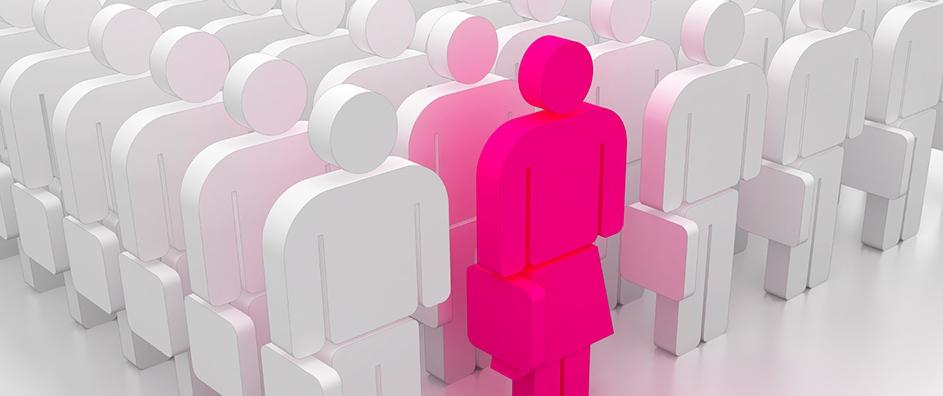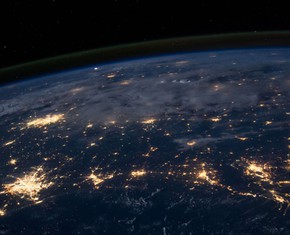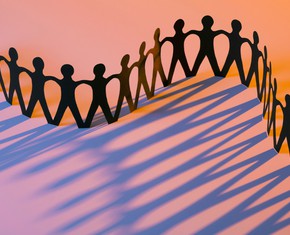The views expressed in our content reflect individual perspectives and do not represent the authoritative views of the Baha'i Faith.
If the first woman God ever made was strong enough to turn the world upside down all alone, these women together ought to be able to turn it back, and get it right side up again! – Sojourner Truth, speaking to the 1851 Women’s Rights Convention
The prolonged slavery of women is the darkest page in human history. – Elizabeth Cady Stanton and Susan B. Anthony, The History of Women Suffrage, written with Matilda Joslyn Gage, 1881
I raise up my voice—not so I can shout but so that those without a voice can be heard… we cannot succeed when half of us are held back. – Malala Yousafzai
New age writers and philosophers often cite feminism and the liberation of women as one of the major driving forces behind the massive social change that characterizes our modern human era.
It’s easy to understand why. When women can’t participate fully and equally in their civilizations, those civilizations always suffer. Utilizing only half of their population’s potential insight, intelligence and initiative, societies that oppress or subjugate women tend to fall behind quickly. Educational attainment suffers, leadership limits itself, and the wisdom and life experience of women, a critical component in the success of any civilization, gets left behind.
In today’s world, the most prosperous and powerful nations, whether from an economic, political, intellectual, or social perspective, all have relatively high levels of gender equality. The poorest and least powerful nations do not. In fact, women in those marginal societies typically face severely limited opportunities and widespread discrimination.
Scientists who study this phenomena used to think that cultural and religious factors in marginalized societies tended to lead to the subjugation of women, but have now concluded that the converse is true. The lack of equality for women, no matter what the reason, makes the society much less likely to thrive.
Economists Mathias Doepke, from Northwestern University, and Michele Tertilt, from England’s University of Mannheim, studied this global phenomena in 2008, and concluded that the clearly symbiotic relationship between economic and cultural development and female empowerment gives inherent benefits to the whole culture. In other words, educating and empowering women also empowers men, and in so doing demonstrably grants distinct advantages to the entire society.
Since one of the United Nations’ eight Millennium Development Goals involves “promoting gender equality and empowering women,” this vital relationship between a culture’s success and the way it treats its females gives fresh meaning to the idea of a new age:
Women have equal rights with men upon earth; in religion and society they are a very important element. As long as women are prevented from attaining their highest possibilities, so long will men be unable to achieve the greatness which might be theirs. – Abdu’l-Baha, Paris Talks, p. 134.
In the human family of God there is no distinction. God is no respecter of gender. The religion of God is one. The human family share in common all the faculties; they share in common all the divine bounties. God has not accredited any difference between the male and the female. The same education must be given to women as to men, so that they may acquire science and arts, so that they may advance along the course of civilization, in order that they may become proficient and attain to the level of men.
In the Orient women have been very degraded in the past, men giving no importance to them, thinking that men were created superior, but through the teaching of Baha’u’llah who declared that a great calling is destined for women, they promoted the facilities for the education and training of the girls. In a brief space of time the girls and the women alike have advanced along the pathway of education. – Abdu’l-Baha, Star of the West, Volume 2, p. 8.
The world in the past has been ruled by force, and man has dominated over women by reason of his more forceful and aggressive qualities both of body and mind. But the balance is already shifting—force is losing its weight and mental alertness, intuition, and the spiritual qualities of love and service, in which woman is strong, are gaining ascendancy. Hence the new age will be an age, less masculine, and more permeated with the feminine ideals—or, to speak more exactly, will be an age in which the masculine and feminine elements of civilization will be more evenly balanced. – Abdu’l-Baha, quoted in Baha’u’llah and the New Era, by J. E. Esselmont, p. 156.
The foundational Baha’i principles have always included the equality of women and men; and Baha’is maintain that no new age can or will occur without the full implementation of that fundamental equality. The growth, advancement and accomplishment of the entire world depends upon this vitally important matter. Because all former religious systems placed men above women, the Baha’i teachings say that a profound gender-equalizing change in human culture is long overdue:
The world of humanity has two wings — one is women and the other men. Not until both wings are equally developed can the bird fly. Should one wing remain weak, flight is impossible. Not until the world of women becomes equal to the world of men in the acquisition of virtues and perfections, can success and prosperity be attained as they ought to be. – Abdu’l-Baha, Selections from the Writings of Abdu’l-Baha, p. 301.
Baha’is believe that humanity has entered a new age, one in which the true potential of both women and men must find full expression, creativity and fulfillment. That new age signals an awakening in the world’s consciousness, a new era of justice and equality, a future that will fully realize the vastly important contribution of women.
















Comments
Sign in or create an account
Continue with Googleor